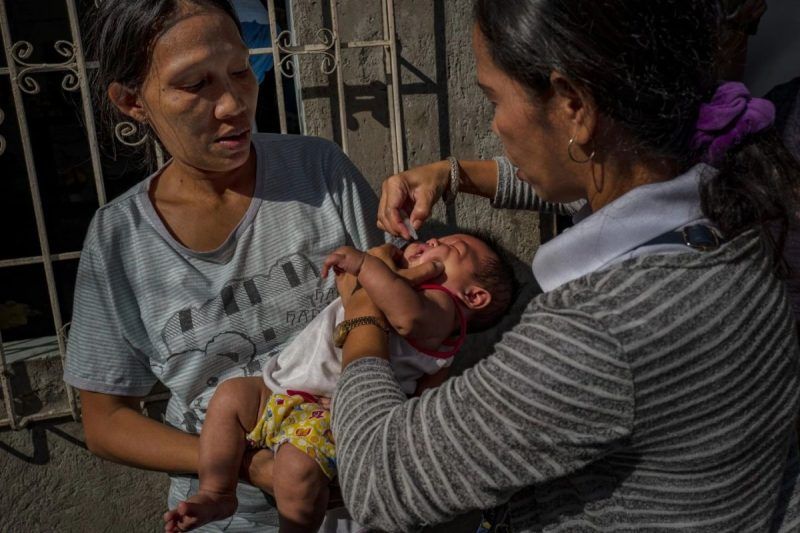
In the aftermath of the Second World War, Japan knew that the task of rebuilding a nation would require investments not only in new infrastructure but also in human capital.
Japan made a political choice: a choice to invest in the health of its population through a universal health insurance scheme that ensured everyone was covered.
Today, Japan has the world’s longest life expectancy and the world’s third-largest economy.
In 2021, Japan will celebrate the 60th anniversary of its universal health insurance scheme. Japan’s health-care system is considered one of the best in the world — accessible, effective, efficient, available to all citizens and affordable. At less than 13 percent, out-of-pocket health spending is among the lowest in the world. Health-care spending accounts for less than 11 percent of gross domestic product.
We believe that health care is a human right for all people, not a privilege for those who can afford it. If that’s the case, we can’t accept a world in which people are impoverished by exercising that right. That’s why we are both committed to universal health coverage, so that all people can access the health services they need without financial hardship.
Unfortunately, at least half the world’s population still lacks access to essential health services, including basic sanitation, the ability to see a health worker, or safe, effective and affordable medicines.
The good news is, countries such as Japan have shown that universal coverage is not only possible, it pays long-term dividends for the prosperity and stability of nations. Investing in health at an early stage of a country’s economic development can create the fundamental infrastructure for sustainable and comprehensive economic growth and social development.
Many countries are now following Japan’s lead. In the past two years, Egypt, South Africa and the Philippines have all passed laws to make universal coverage a reality, while Kenya and India both embarked on ambitious schemes to expand access to free health services for millions of people. In September, world leaders at the U.N. General Assembly unanimously adopted a political declaration on universal coverage — the first time all 193 U.N. member states have unified around a common and comprehensive commitment to achieving this goal. A month later, legislators from 140 countries at the Inter-Parliamentary Assembly in Belgrade, Serbia, passed a similar resolution.
Universal coverage creates the conditions required for people to live healthy lives, free from vaccine-preventable diseases and premature death from treatable diseases. Strong primary health care including nutrition, water and sanitation is the cornerstone of universal coverage, reducing the reliance on expensive hospitals and specialist services.
Here is why it is even more important today than when Japan took this step 60 years ago. The world is facing massive threats to human health and security — climate change, infectious diseases, mass migration and widening economic inequality. Urbanization and global connectivity increase the risk of pandemics. The surge of diabetes and other noncommunicable diseases in the global south mean there is a growing need for advanced medical treatment in addition to the traditional response to infectious diseases. Antimicrobial resistance is a growing concern worldwide. Universal coverage is essential to addressing these challenges.
In June 2019, under Japan’s Group of 20 presidency, universal coverage was on the agenda for both finance ministers and health ministers. Finance ministers agreed on key issues for establishing sustainable health-financing systems, and health and finance ministers sat together for the first time to discuss the importance of health financing.
Time is short. In 2015, world leaders committed to achieving universal health coverage by 2030 as part of the Sustainable Development Goals. With just 10 years remaining, the Universal Health Coverage Forum in Bangkok in January and the Tokyo Nutrition for Growth Summit in December 2020 offer a vital opportunity to elicit concrete actions. Specifically, we call on all countries to develop strong primary health-care-based health systems, to strengthen health financing and to invest in innovations related to health technologies and service delivery.
In taking these actions, countries should put more focus on strengthening health systems, which can deal with a wider range of health challenges than existing disease-based approaches. Collaboration beyond the health sector, including the finance sector, is also vital.
National ownership is also an essential factor for countries’ success. Each government has to have a sense of responsibility to adopt consistent policies and to implement them effectively and efficiently to realize this ambitious goal.
At the state, regional and global levels, universal coverage creates a common front against poverty, pandemics, disease control and the health effects of climate change. Strong coverage builds healthier people everywhere – for individuals, families, communities and nations.
Shinzo Abe is prime minister of Japan. Tedros Adhanom Ghebreyesus is director-general of the World Health Organization.
